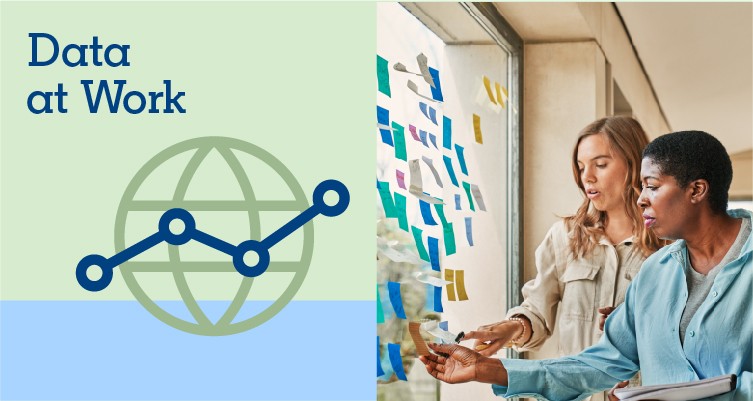
LinkedIn Global Green Skills Report Shows Gap Between Demand and Supply of Green Talent
As Chief Economist at LinkedIn, I lead a team of economists and data scientists that unearth the most interesting insights from over 800M global members. Every month I’ll share a snapshot of key trends to help shed light on where the world of work is headed. This month, we’re looking at the Global Green Skills Report.
The world of work is shifting. And the pace of change over the past few years alone has been remarkable: we expect the skills needed by 2025 to perform the same jobs will change by about 40%.
A question our team has been asking amidst all this change and uncertainty is — how do we leverage this unprecedented moment of the #GreatReshuffle to power positive societal change to ensure workers, employers, and our communities emerge from this moment more resilient?
One area where we see massive potential to harness this moment for long-term impact is in the climate crisis fight. In many ways, the shift to a green economy will require a green talent transition - a collaborative effort across public and private sectors to equip our workforces with the green skills needed to propel more organizations to achieve ambitious climate goals.
In this vein, LinkedIn today released the Global Green Skills Report, a first of its kind report fueled by our real-time data across 800M+ members revealing new findings on the state of green skills and jobs worldwide. A few key insights our team uncovered in this work:
Need for Green Talent is on the Rise Globally
Hiring for green skills grew globally by almost 40%, but it is nowhere near what’s needed; demand for green talent will soon outpace supply. We have not made enough progress, especially when it comes to equipping workers with the green skills they need to meet this growing demand. While job postings requiring green skills grew at 8% annually over the past five years, the share of green talent has grown at roughly 6% annually in the same period. This is a significant missed opportunity for the planet and for workers — one that we can begin to address immediately.
Need For Green Jobs Spans Well Beyond Sustainability-Focused Roles
As I’ve written previously, it's critical we broaden the aperture through which we think about the skills and jobs that contribute to a zero-carbon, clean economy. The responsibility for greening the economy applies to a lot more people than solar panel installers and sustainability consultants. And so when we look at the fastest growing green jobs from 2016-2021, while Sustainability Manager, Wind Turbine Technician, and Solar Consultant top the list in terms of annual growth, we can also see fastest growing “greening” jobs include broader roles like Compliance Manager, Facilities Manager, and Technical Sales Representative.
Global Gender Gap in Green Jobs Persists
We know from past research that gender gaps still persist across many of the fastest growing and emerging roles on our platform, and the same is true when we look at in-demand green skills. In 2021, there were only 62 women for every 100 men considered green talent. Though some European countries like Netherlands and Ireland are showing bright spots, as we transition towards a greener economy it’s critical we do so in a way that benefits more corners of the labor market and creates economic opportunities for groups currently on the sidelines.
Green Entrepreneurship is Needed to Fuel New Solutions
Solving the climate crisis will require new, innovative solutions, and entrepreneurs have a leading role to play to get us there. Our research shows green entrepreneurship is blossoming across multiple industries. While still niche, the share of entrepreneurs adding green skills to their profiles increased from 2% in 2016 to 3% in 2021 globally. Top skills being added by founders in this field are Sustainability, Renewable Energy and Sustainable Design.
Climate change will continue to impact every facet of the global economy and is transforming how every company does business. At its core, greening the economy is a human capital issue, and our latest findings demonstrate how every company and employee has a role to play in this shift.
I encourage you to read the full report here, explore interactive data here, and go deeper with our related LinkedIn Learning course here.
Thanks to the team who helps bring this newsletter to life. Wondering how we calculate these numbers every month? Visit the report for info on this month's methodologies.



Media Relations Contractor
2yI'd love to get into the sustainability sector, and have masses of experience and abilities to give, but it's difficult to get a foothold. I feel I have a great deal more to give in CSR / ESG than retread a role as a bog standard Head of PR. Anyone out there!!!
MHT at JBS
2yThis is good for the environment
Stakeholder Engagement Strategist/Advisor/Convener
2yKarin, thanks for posting this and allowing many views to comment. I think this is both a challenge and an opportunity. I would love to share my thoughts and resources through CBCF with you.